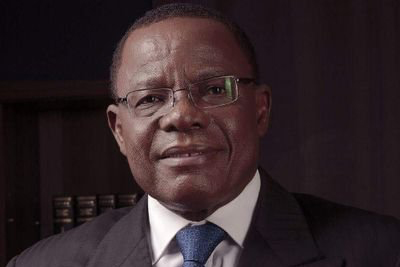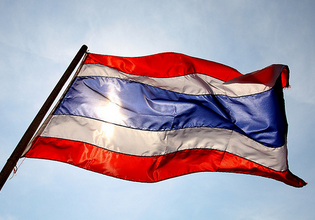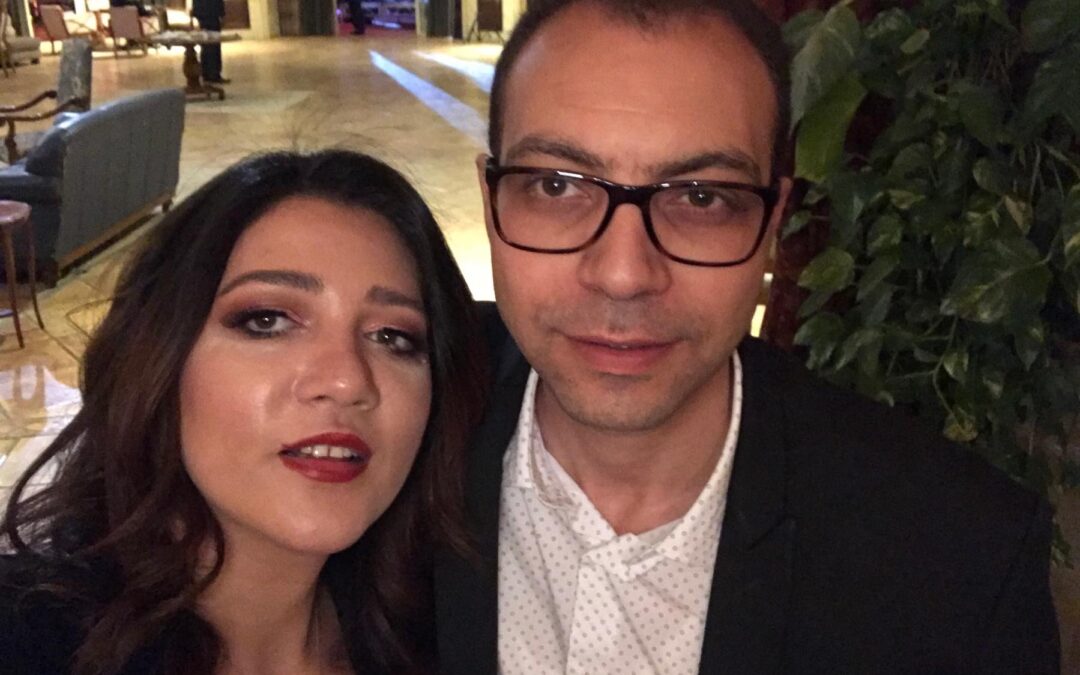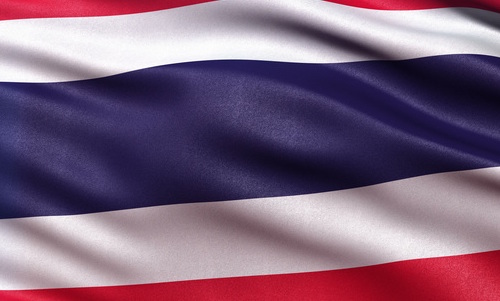
Feb 12, 2019 | News
As the trial of twelve Catalan separatist leaders begins before the Spanish Supreme Court today in Madrid, the ICJ warns that their trial on broadly defined offences of rebellion and, possibly, sedition unduly restricts rights of freedom of expression, assembly and association.
“The very broad definition of the offence of rebellion being applied in this case risks unnecessary and disproportionate interference with rights of freedom of expression, association and assembly,” said Róisín Pillay, ICJ Europe and Central Asia regional Director.
The twelve political leaders – including high-ranking Catalan government officials – have been charged in connection with their part in the administration on 1 October 2017 of a referendum on Catalonian independence.
The referendum was conduced despite having been declared illegal by the Constitutional Court.
The voting process during the referendum was partially suppressed by the police, with credible reports of the use of unnecessary and disproportionate force in breach of Spain’s international law obligations.
“Interference with peaceful political expression and protest must be justified as strictly necessary and proportionate under international human rights law. Where peaceful protests or political actions, even if declared unlawul by the authorities, provoke an excessive response by the police, it is solely the police and other state authorities who should be held responsible for the violence,” Pillay said.
“It is crucial that the Supreme Court, in its consideration of these charges, takes full account of Spain’s obligations under international human rights law,” she added.
The ICJ is concerned that prosecutors, and the Supreme Court in admitting the indictment in the case, have ascribed an unduly broad meaning to the offence of “rebellion” under article 472 of the Criminal Code.
According to that article, the offence requires violent insurrection to subvert the constitutional order.
But the referendum organizers are not accused of using or advocating violence.
Rather, they are being tried on the basis that they should have foreseen the risk of intervention and the use of force by the police.
It is therefore alleged that the defendants were criminally responsible for the violence that ensued from their decision to carry on with the referendum, despite it being declared illegal.
Although the Supreme Court has held that the use of force by Spanish law enforcement authorities during the repression of the referendum of 1 October 2017 was “legitimate and, as such proportionate”, international observers have concluded that such use of force was excessive and disproportionate.
In accordance with international human rights law, the mere fact that the use of force is considered to be legal under national law, does not of itself mean that it can be considered to be necessary and proportionate.
The Supreme Court has further already accepted that, if the facts alleged by prosecutors are proven, they could amount to the offence of sedition, which is committed by those that that rise up publicly and in a tumultous way, by force or by unlawful means, to impede the implementation of laws or of authorities’ orders.
“Vague, broadly defined offences of sedition or rebellion risk violation of the principle of legality, as well as arbitrary and disproportionate interference with human rights,” said Róisín Pillay.
“In a highly sensitive and politicised case such as that of the Catalonian referendum, they would set a dangerous precedent for the targeting of peaceful independence movements and political dissent, not only in Spain but internationally,” she added.
Several of the accused have already been held in pre-trial detention for lengthy periods, further exacerbating the severity of the interference with rights to freedom of expression, association and assembly, and casting doubt on the proportionality of the response.
Contact
Róisín Pillay, Director, ICJ Europe Programme, t: +32 476 974263 ; e: roisin.pillay(a)icj.org
Background
The 12 people on trial in connection with the October 2017 referendum include Oriol Junqueras (photo), former Catalan vice-president; Carme Forcadell, former Catalan parliament speaker; eight former ministers in the Catalan government – Jordi Turull, Raül Romeva, Joaquim Forn, Santi Vila, Meritxel Borràs, Dolors Bassa, Josep Rull, Carles Mundó -; Jordi Sànchez the former leader of the Catalan National Assembly (ANC); and Jordi Cuixart, former head of the independence organisation Òmnium Cultural.
The trial, which begins on 12 February in the Supreme Court in Madrid, is expected to last for several months.
Spain has obligations to protect freedom of expression, including political expression, under Article 10 of the European Convention on Human Rights (ECHR) and Article 19 of the International Covenant on Civil and Political Rights (ICCPR); and freedom of peaceful assembly and association under Article 11 ECHR and Article 21 and 22 ICCPR.
The Human Rights Committee in its General Comment on freedom of expression has affirmed that: “extreme care must be taken by States parties to ensure relating to national security, whether described as official secrets or sedition laws or otherwise, are crafted and applied in a manner that conforms to the strict requirements of paragraph 3 of article 19 ICCPR, which requires that restrictions on freedom of expression be provided for by law and must be necessary for a legitimate purpose, such as national security or public order .) Rights to participate in public life are protected under Article 25 ICCPR.

Feb 5, 2019 | News
The ICJ expressed its grave concern today at the arrest, detention and criminal charges brought against Maurice Kamto, leader of the opposition party Cameroon Renaissance Movement (CRM), and other CRM activists.
The ICJ called for the immediate release of Maurice Kamto, who is also former Commissioner of the ICJ.
The arrest of Maurice Kamto, on 28 January, came following the violent breakup by the security forces of opposition demonstrations on 26 January.
Maurice Kamto is said to face charges of sedition, insurrection and inciting violence.
There are reports that he and other arrested persons have begun a hunger strike.
The ICJ is concerned that Maurice Kamto and other opposition leaders may be prosecuted for the exercise of rights protected under international law, including the rights to freedom of expression, association, assembly and political participation
The ICJ called on the Cameroon authorities to fully safeguard the human rights of Maurice Kamto and the other detainees, including the rights to liberty, fair trial, and freedom from ill-treatment, guaranteed under Cameroonian and international law.
Contact:
Arnold Tsunga, ICJ Africa Director; t: +27716405926, or +254 746 608 859 ; e: arnold.tsunga(a)icj.org
Solomon Ebobrah, Senior Legal Adviser, ICJ Africa Regional Programme, t: +234 8034927549 ; e: solomon.ebobrah(a)icj.org

Jan 25, 2019 | Advocacy, Legal submissions
Today, the ICJ and Lawyers Rights Watch Canada (LRWC) submitted a joint amicus curiae in criminal defamation proceedings against human rights defenders Nan Win and Sutharee Wannasiri for bringing to light alleged labor rights violations at Thammakaset Company Limited.
The defamation charges relate to a 107-second film, produced by the non-governmental organization Fortify Rights, which documents previous defamation complaints brought by Thammakaset against 14 of its former migrant workers from Myanmar.
Nan Win was one of the migrant workers featured in the film. Sutharee Wannasiri, former Human Rights Specialist with Fortify Rights, was charged in connection with making three Twitter posts relating to the film.
The brief aims to clarify the nature and scope of Thailand’s international legal obligations relating to the right to freedom of expression and points out that the imposition of harsh penalties such as imprisonment or large fines on a human rights defender risks having a ‘chilling effect’ on the exercise of freedom of expression, which Thailand is bound to protect pursuant to its international legal obligations.
The preliminary examinations of Nan Win and Sutharee Wannasiri will begin on 4 February and 11 March 2019, respectively.
During the preliminary examination hearing, is the Court will consider the case before it to determine if it is a prima facie case.
The preliminary examination hearing is a mandatory proceeding in matters involving prosecution claims brought by private individuals or entities, such as in the case of Nan Win and Sutharee Wannasiri.
If the preliminary examination finds that the cases are prima facie, the court will admit to trial only the charges relating to the counts deemed prima facie.
If the court finds no prima facie case, it can rule that the charges be dismissed.
Read also:
Thailand: Drop defamation complaints against human rights defenders Nan Win and Sutharee Wannasiri (3 December 2018)
Download:
Thailand-Nan Win Kratik_Amicus-Advocacy-legal submission-2019-ENG (full amicus in PDF, English)
Thailand-Nan Win Kratik_Amicus-Advocacy-legal submission-2019-THA (full amicus in PDF, Thai)

Dec 20, 2018 | News
Today the ICJ called for appropriate measures to ensure justice in the case of Amal Fathy, an Egyptian human rights defender who was sentenced to two years’ imprisonment following her conviction for criticizing the Egyptian authorities’ inadequate response to rampant sexual harassment on social media.
On 30 December, Cairo’s Misdemeanor Court of Appeal will decide on Amal Fathy’s appeal against the conviction. The ICJ stresses that Fathy’s conviction and her prolonged arbitrary detention violate her rights to freedom of expression and to liberty protected under Egyptian and international law.
On 29 September 2018, the Maadi Misdemeanor Court convicted Fathy of “broadcasting false information harmful to national security;” “publishing online material that insults public decency;” and the public “use of foul language.” The charges were in reaction to her posting a video on Facebook criticizing the Egyptian authorities for failing to protect women against sexual harassment and for the poor quality of public services.
The Court sentenced Amal Fathy to two years’ imprisonment for the first two charges and fined her 10,000 Egyptian Pounds (US$558) for the latter, and set bail at 20,000 Egyptian Pounds (US$1115) pending her appeal.
Amal Fathy is said to be suffering from acute stress and depression as a result of her detention.
“Amal Fathy was charged and convicted for exercising her human right to freely express herself, which she exercised by calling on the Egyptian authorities to meet their obligation to protect the population from gender-based violence and commenting on the effectiveness of the services they provide. This is hardly a threat to national security or insult to public decency,” said Said Benarbia, Director of ICJ’s Middle East and North Africa Programme. “We hope the Court will recognize the charges are completely without legitimacy.”
Amal Fathy was detained from the time of her arrest on 11 May 2018 and following her conviction, despite posting bail. Her ongoing detention was based on charges issued by the Supreme State Security Prosecution on 12 May 2018 in a second case (Case No. 621/2018), including “membership in a terrorist organization,” “the use of the internet to promote ideas and beliefs calling for terrorist acts” and “spreading false news and rumors that damage public order and harm national interest.” There are at least six other defendants in the case, including two political activists, a journalist and a satirical comedy TV reporter. It is unclear whether she was charged under the Penal Code or Anti-Terrorism Law of 2015. On 18 December 2018, the South Cairo Court of Felonies ordered her conditional release and she is expected to be released on 22 December 2018.
“The Egyptian authorities have increasingly used pre-trial detention to harass human rights defenders or anyone who opposes the authorities and to chill them from further exercising their rights,” said Said Benarbia. “Case 621 is a concrete example, where trumped up charges are used as a tool to such ends.”
Amal Fathy’s arbitrary arrest and detention is no isolated case. In September, UN experts condemned Egypt’s systematic targeting and prolonged arbitrary detention of human rights defenders, expressing particular concern over Amal Fathy’s case. Local and international organizations, including the ICJ, have also documented and criticized the persecution of human rights defenders and political activists in Egypt through the use of the courts. The ICJ has documented how the Egyptian justice system is consistently used as a repressive tool to silence and eradicate political expression and human rights work.
Contact:
Said Benarbia, Director of the ICJ Middle East and North Africa Programme, t: +41-22-979-3817; e: said.benarbia(a)icj.org
Background:
Amal Fathy was arrested at dawn on 11 May 2018, along with her husband Mohamed Lotfy, Director of the Egyptian Commission for Rights and Freedoms, a human rights non-government organization. They were taken together with their three-year-old son to the Maadi Police Station. Lofty was released shortly after with their son and Fathy remained in detention until 18 December 2018. Fathy was charged under Articles 102bis, 178 and 306 of the Egyptian Penal Code (Case No. 7991/2018).
In the second case, which is still at the investigation stage, reports indicate the South Cairo Court of Felonies requires Amal Fathy to visit a police station for one hour each week and remain at her home unless she requires medical treatment as conditions of her release. Her next appearance is on 26 December 2018.
During the investigation of felonies related to national security, under Articles 143 and 206bis of the Egyptian Criminal Procedure Code, the Prosecutor can hold defendants in pretrial detention for up to five months (10 times 15-day renewals) before they must be referred to the competent criminal court for trial. Under Article 143, once the case is referred to the competent court, a defendant’s pre-trial detention can be extended each 45 days for up to 18 months, or “not exceeding two years if the penalty prescribed for the felony is life imprisonment or the death penalty.” Article 143 goes on to provide that “in cases of felonies punishable with the death penalty or life imprisonment, the Court of Cassation and the Court of Referral may order that the accused be held in custody for a renewable forty-five days, without the [above] time restriction.” This leaves the possibility for defendants to be detained indefinitely, which is open to abuse. In a mass trial of 739 defendants, all 320 arrested, including photo journalist Mahmoud Abu Zeid, remained in pre-trial detention for more than five years, before a verdict was handed down in September this year.
Article 9 of the International Convention on Civil and Political Rights (ICCPR), to which Egypt is a party, protects freedom from arbitrary arrest and detention and imposes an obligation on States to ensure a number of protections, including the right to be brought promptly before a judge and the right to habeas corpus. Article 19 of the ICCPR protects the right to freedom of expression. The United Nations Declaration on Human Rights Defenders similarly protects such rights exercised by human rights defenders and enjoins States to protect them from violence, threats, retaliation, de facto or de jure adverse discrimination, pressure or any other arbitrary action for the lawful exercise of such rights.
Arabic language version of this statement in PDF format: NEWS-PR-EGYPT-AMALFATHY-AR-2018

Dec 13, 2018 | Advocacy, News, Non-legal submissions
The ICJ and Thai Lawyers for Human Rights (TLHR) welcome the decision of Prime Minister Gen. Prayut Chan-o-cha, acting as the Head of the National Council for Peace and Order (NCPO), to lift certain restrictions on political activities.
The organizations highlight, however, that much more is needed to fully reinstate protection of human rights and fundamental freedoms in Thailand ahead of elections scheduled to be held on 24 February 2019.
This order repealed Article 12 of HNCPO Order No. 3/2558, which prohibited the gathering of five or more persons for a “political purpose”, lifting a ban which had carried a punishment of imprisonment not exceeding six months and/or a fine not exceeding 10,000 Baht.
“The lifting of the ban on political gatherings is welcome – however, the new order only lifts one specific restriction imposed by HNCPO Order 3. Restrictions on fundamental freedoms imposed by other articles of HNCPO Order 3, such as the granting of broad, unchecked powers to military officers to investigate, arrest and detain persons for up to seven days, remain in force,” said Kingsley Abbott, ICJ’s Senior International Legal Adviser.
“We reiterate our call for the Thai government to immediately amend and repeal all laws, HNCPO Orders, NCPO orders and announcements inconsistent with Thailand’s international human rights obligations.”
ICJ and TLHR also express serious concern that even as nine orders and announcements have been repealed by HNCPO Order No. 22/2561, Article 2 of the order clarifies that “prosecutions, actions or operations” already in effect by virtue of those orders will not be affected by the coming into force of the Order.
Cases brought before 11 December 2018 under HNCPO Order No. 3/2558 to penalize persons exercising their rights to free expression, assembly and association can therefore legally continue to be prosecuted in courts.
“Cases brought under the now-repealed section of HNCPO Order 3 should be dropped or withdrawn. They should have never been brought before the courts in the first place,” said Abbott.
“In the lead up to elections next year, the Thai government must take further steps to expand space for free expression, assembly and association. This new order is welcome, but it is certainly not enough.”
Further information is available in the full statement below
Thailand-Lifting political ban-Advocacy-Joint Statement-2018-ENG (full statement in English, PDF)
Thailand-Lifting Political Ban-Advocacy-Joint Statement-2018-THA (full statement in Thai, PDF)
See also
ICJ, ‘Thailand: Lift ban on political gatherings and fully reinstate all fundamental freedoms in Thailand’, 1 October 2018
Further reading
ICJ, TLHR and Cross-Cultural Foundation (CrCF), Joint Follow-up Submission to UN Human Rights Committee, 27 March 2018
ICJ and TLHR, Joint submission to the UN Human Rights Committee, 13 February 2017
Contact
Kingsley Abbott, ICJ Senior Legal Adviser, email: kingsley.abbott(a)icj.org









